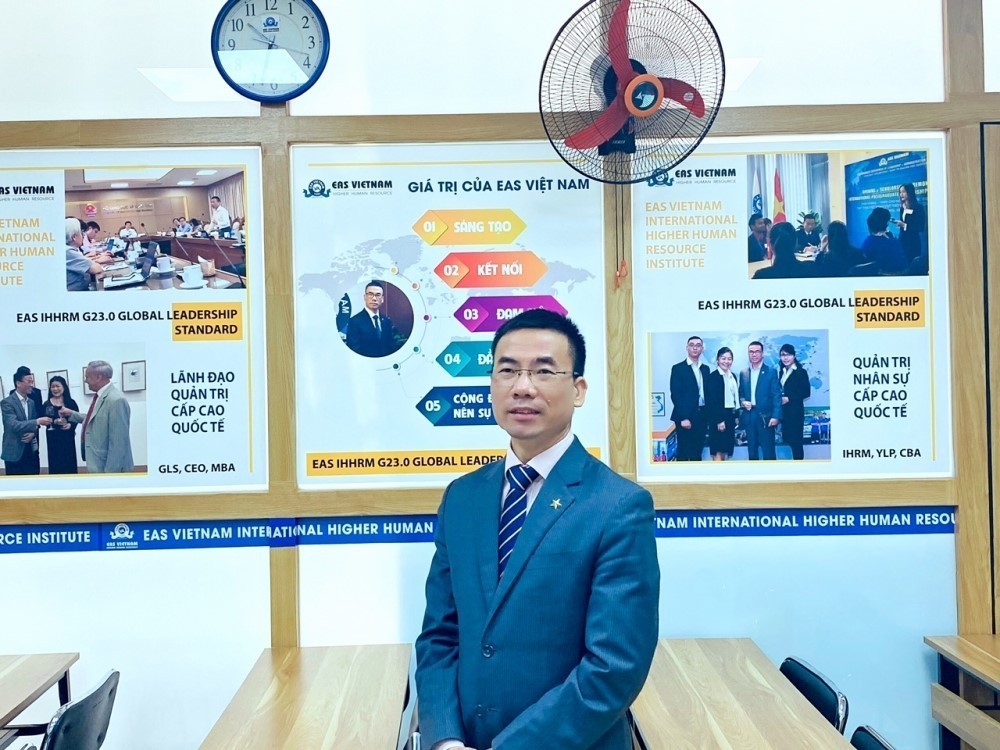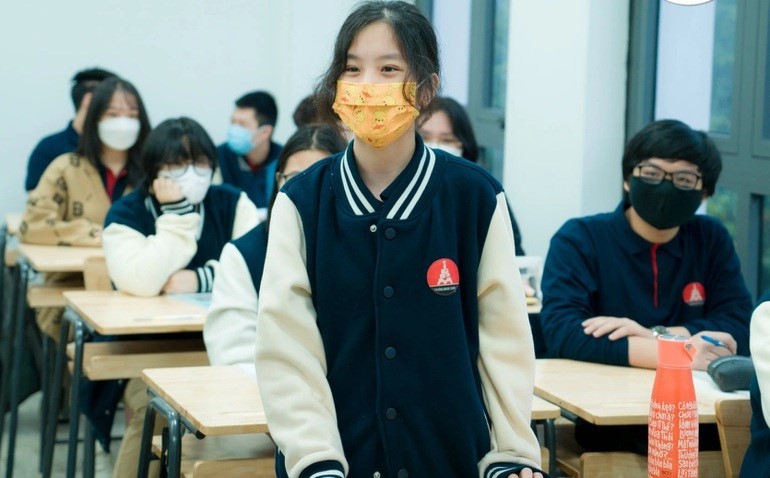
Education needs more autonomy to elevate international competitiveness
Latest
 |
| Dr. Bui Phuong Viet Anh, President, General Director of EAS Vietnam Education Organization. (Photo: EAS) |
According to Dr. Bui Phuong Viet Anh, President, General Director of EAS Vietnam Education Organization, educational institutions need to be consulted for more autonomy in establishing the substantive training program, avoid being formalist and over academic as well as increase competitiveness in the global market.
Educational trends
The fourth industrial revolution has challenged the whole society globally and nationally in terms of integration and development competition.
In this competition, education is also significantly affected because this field is considered as “a key” of high quality human resource to serve for the construction and development of each country, each economy, even each organization or enterprise.
Meanwhile, nations’ political systems have changed to accommodate the global political situation, setting a goal to change the educational system leading to current varied educational tendencies.
There is 5 educational trends: (1) Teacher is the center of subjective education, (2) Learner is the center of education, (3) Knowledge and methods are center of enlightening education, (4) Tools and learning formats are center of self-control education, (5) Transformational and holistic capacity are center of adaptive capacity education.
The global academic crisis has deepened the differences in educational trends between continents and even countries, leading to a disparity in the quality of trained human resources, contributing to shaping the socio-cultural of that continent and country.
The biggest challenge of education in Vietnam and ASEAN
Vietnam is trending towards learner-centered education. That means using the human power and wisdom of the teacher as academic leverage, leading to much more limited training results and quality of human resources. Despite overcoming some limitations of the subjective education tendency, the student-centered trend is not mastered completely.
Meanwhile, Vietnam's trained human resources are less competitive in the labor market than other countries like Malaysia, which is applying successfully the third trend.
Therefore, the challenge for education in ASEAN in general and in Vietnam in particular is still to transform education trends and governance models to promote effective digital transformation and trained human resources with high international competitiveness.
This is a huge challenge that the education of ASEAN has to deal with. From there, promoting education reform needs to apply effective digital transformation, improve the integration capacity of the education system as well as training institutions and human resources to achieve a high level of international competition.
Obstacles for young generation
When education trends are used successfully, digital transformation of education takes on decisive significance. Educational institutions as well as students need to be fully aware of the function of high-quality human resource training to ensure successful integration. Since then, becoming a digital citizen is a requirement of the times.
To fulfill this requirement, each citizen taking part in learning must overcome obstacles in addition to the government’s policies and the efforts of educational institutions.
Firstly, it is necessary to use self-control flexibly and determination when dealing with difficulties. Young people need to remove the impatience from their minds.
Secondly, poor foreign language ability is a serious barrier that citizens of second-trend countries are paying the price for, which hinders integration.
Thirdly, education models have not attracted learners and lacked an effective approach.
Fourthly, using the Internet without a clear orientation leads to the destruction of creativity and self-reliance of young people.
 |
| Vietnam is trending towards learner-centered education. (Photo: VNA) |
A sustainable education
According to Dr. Anh, it must be viewed with fairness that inclusive education in the ASEAN region in general and Vietnam in particular is still not really effective.
Therefore, in order to have a sustainable education, Vietnam needs to fulfill some missions.
Education transparency and educational autonomy with the nature of the economic model applied by countries will limit barriers to education.
Additionally, there is a need for cultural and educational collaboration to bring together academics for the entire region, creating an ecosystem of education and technology both throughout ASEAN and inside each nation.
This cooperation will open more opportunities to academic exchange, training programs and building documents for research and teaching activities, thereby ensuring high quality of educational services.
Necessity of curriculum development
A few technology companies or educational digital transformation programs with software is not enough to reach knowledge.
Training institutions need to build an educational culture, a university culture... so that the school is aware of the role, importance and task for adapting to the requirements of integration, not only depending on the teacher.
Secondly, educational institutions need to be consulted to be more autonomous in building practical training programs, avoiding formalities as well as improving the school's competitiveness instead of only paying attention to raising tuition fees. Thereby improving competitiveness in the ASEAN region as well as in the world.
As both recruiters and trainers, Dr. Anh is looking for people with good physique, positive attitude and eagerness to learn. In the process of working, candidates will be trained in other skills that are lacking.













